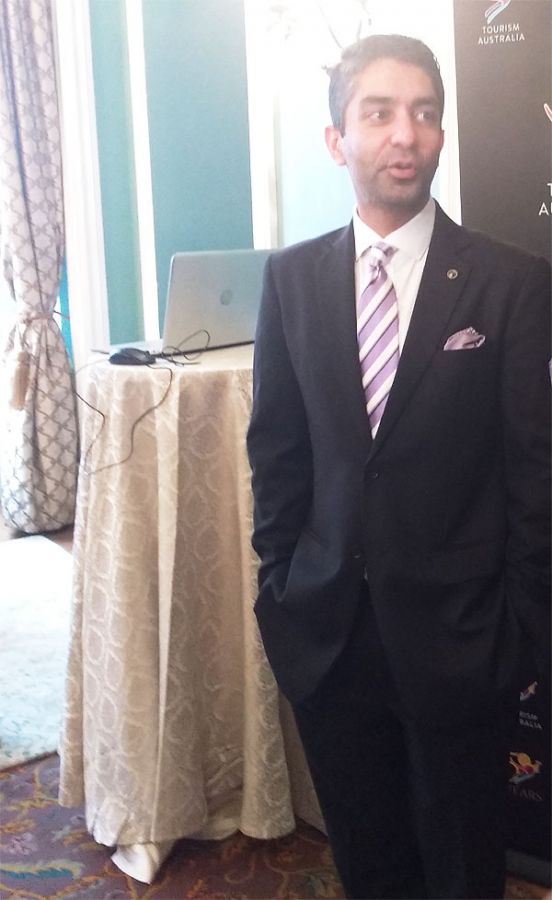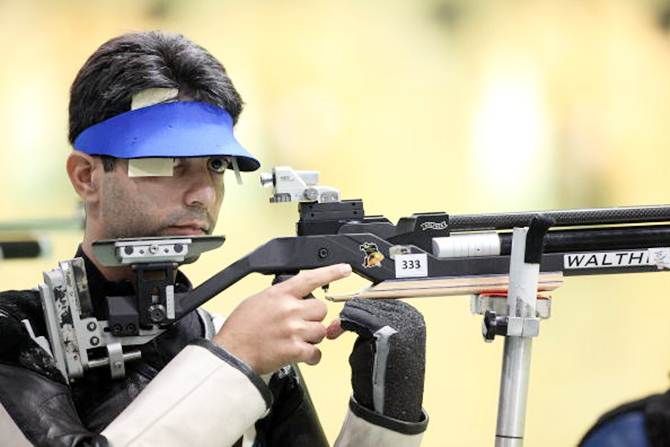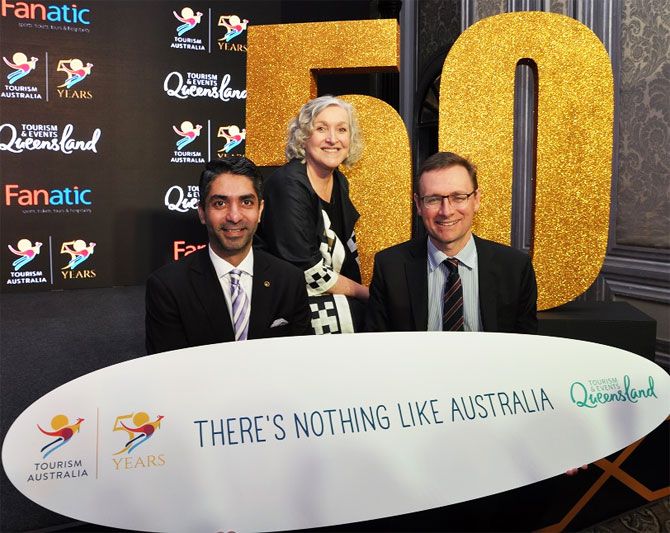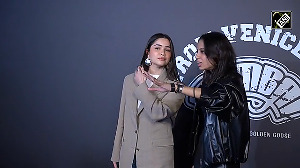'10,000 athletes compete at an Olympic Games, only 300 go back with a gold medal.'
'It takes time for an athlete to develop, you have to give the athletes a chance and time to develop.'

Abhinav Bindra, the only Indian to win a solo gold medal, says lack of a sporting culture is hurting India's chances at events like the Olympics and Commonwealth Games.
Implementing stop gap solutions, the 2008 Olympic champion points out, is not the way forward if India wants to improve its medals tally at mega sporting events.
"For us to develop as a sporting nation, we can't reach our aspirations if that (stop-gap solutions) is our model. We can't just keep plugging in the gaps. We need a system which is smooth and rolling and world class. Only then will it deliver results," the champion shooter said in Mumbai on Monday.
"If we look to only plug the gaps in a hope that it will give the impetus and it will give the result... yes, it will give the results, but it will be restricted to medals here and there," he added.
"If we want 30, 40 medals then it requires the whole system to work very smoothly," Bindra told Rediff.com on the sidelines of an event in Mumbai.
Following the dismal performance by India's shooters at the 2016 Rio Olympics -- all 12 shooters returned home empty handed -- the National Rifle Association of India set up a committee led by Bindra last October.
In his scathing report, Bindra, who finished fourth in Rio -- he missed a medal in the men's 10m Air Rifle event, losing a nail-biting shoot-off against Ukrainian marksman S Kulish after the two were tied third at 163.8 in the race to reach the medal round -- and his four-member committee concluded that the consistent trickle of shooting medals since the 2004 Athens Games ended up making everyone involved in the sport complacent.
"Everyone took it for granted that there would be progress automatically, and forgot to ensure a systematic healthy process," he said.
'It can be said with no reservations that Indian Shooting 'over achieved' at the Rio Olympic Games. The formula for success was wrong and Indian Shooting had ridden its luck over the last few years, no doubt helped by some extremely talented shooters,' Bindra's report added.

Asked if the NRAI had acted on the recommendations made, Bindra said, "I don't know. I'm not an athlete any more, so I don't see the day to day scenario. So I don't know exactly how much is being followed or implemented."
"See, the thing of my committee was only to give recommendations. It was not a committee which would implement the recommendations. So honestly I have not had the chance to... because once you're not an athlete you don't see the ground situation."
"Once in a while, here and there I hear things, but I'm not there on a day to day basis. I don't know, I really don't know," said Bindra who is also part of the Olympic Task Force and chairman of the Target Olympic Podium committee.
"In TOPS my role is talent identification and it stops at that. The implementation of TOPS is different."
"Again, the OTF is a recommendatory body, we studied the scenario and recommended... on the ground what happens I don't know because I'm only mandated to make a report and that we've done to the best our ability."
"I think, hopefully they'll be implemented on ground and sport in India will develop," he added.
On the topic of India's not so flattering Olympic performances vis-à-vis World Cup events, Bindra stressed: "The Olympics is a different event. It is a different field. It has a different aura attached to it. Also, there are four World Cups in our sport every year, the Olympics comes once in only four years."
"So we really need to have a good preparation leading up to the Games and the ability to peak at that moment because at the World Cups if you don't do well in the first, two weeks later you have the second one, so there are more chances (to win a medal) but in the Olympics it's once in four years and in order to do well in the Olympic Games you need to perform and to prepare very well."
"I think it's all about preparation. It's overall preparation... the mental preparation is one side to it, there is a technical side, a physical side and all these aspects have to come together once for all on that particular day, once in four years."

Bindra is quick to point out that India does well at the Commonwealth Games and expects the current lot of shooters to shine at the 2018 CWG in the Gold Coast, Australia.
Just like in Glasgow in 2014, there will be no team event likely at the Gold Coast Games, and Bindra believes "it is tougher for Indian shooters. But that said, the Indian team is the strongest in shooting at the CWG."
"We have a lot of talent, a lot of depth in various events of shooting. We have lots of young people coming up, which is a good sign. If they are nurtured well and trained well through the whole journey, not just 12 months..."
"The performance and the systemic support has to be consistent throughout the four year period and then I think we will get more results," he said.
The Commonwealth Games, he said, has its own importance.
"I won nine medals at the Commonwealth Games, but I ended up winning my first individual gold at the last Games (2014 Glasgow)."
"It takes about eight years to develop as an Olympic athlete, very few athletes actually who go there and win medal in their first Games. 10,000 athletes go and compete at an Olympic Games, only 300 go back with a gold medal, the number is very, very less."
"It takes time for an athlete to develop, you have to give the athletes a chance and time to develop and go there."
"The experience which they gain from their first Games, they may not (win) a medal, but it is going to add to their experience which will help them to go and win in perhaps the next Games."









